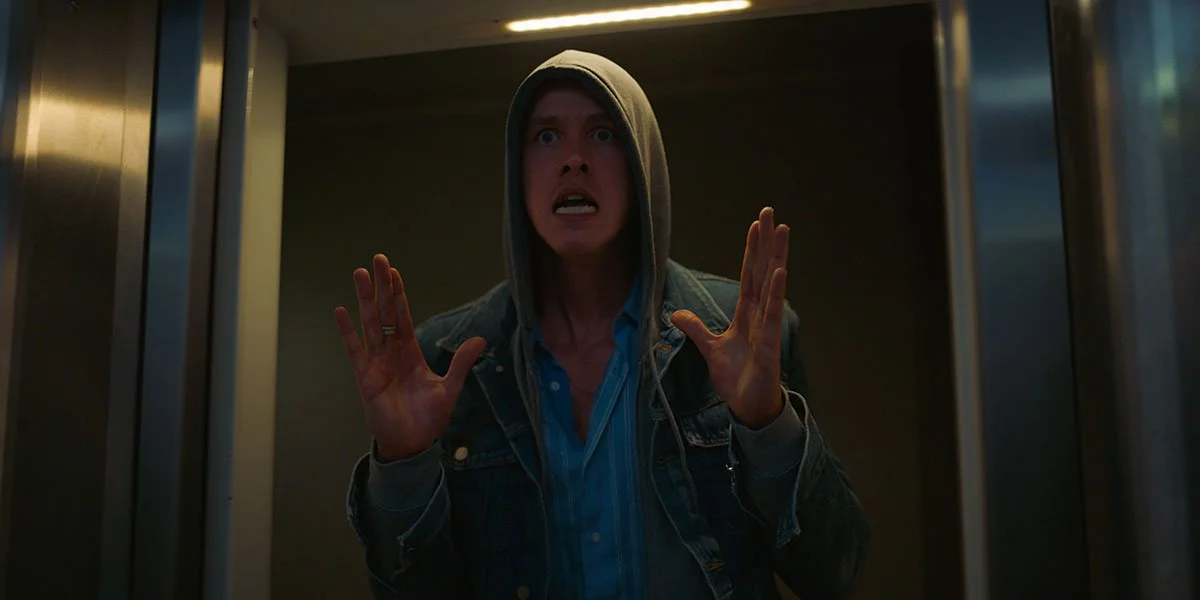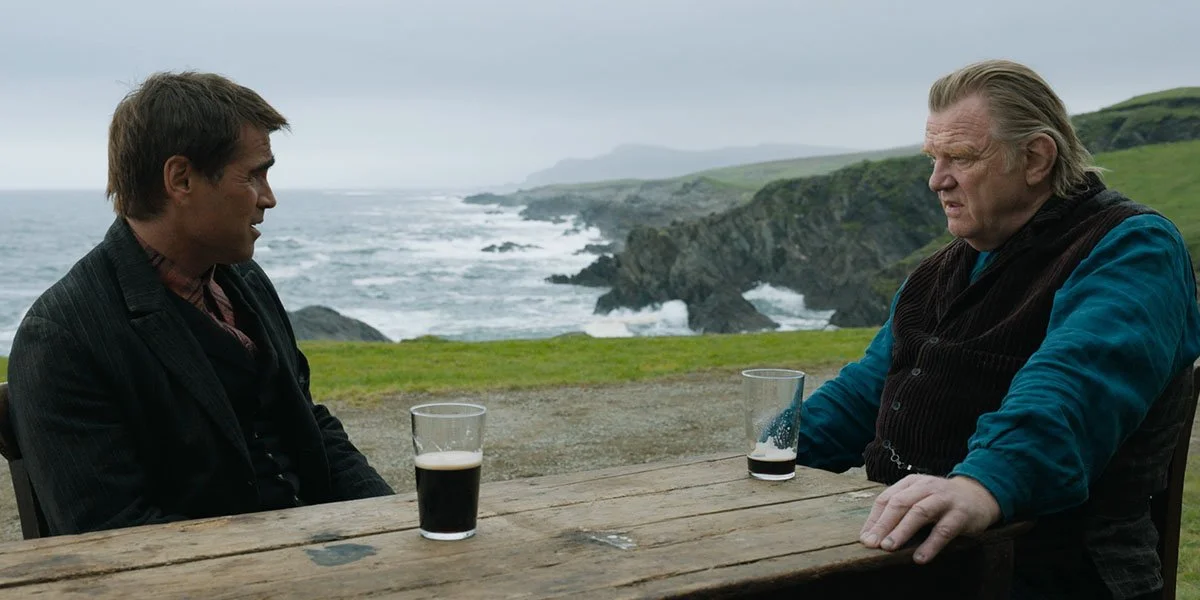That’s a Wrap! What We Loved and Loathed at TIFF ‘22
By Original-Cin Staff
Another year, another edition of the Toronto International Film Festival. As always, the festival is a merry-go-round of pleasures and pains: fabulous films seen and fabulous films missed because of poor scheduling choices or, for your humble reporters, a need to just go home and write.
Still, there were many high-water marks: multiple heavyweight films directed by women, the Indigenous experience spotlighted and considered, tiny foreign and independent films elevated, and marquee films ushered into awards seasons with giddy advance buzz. And really, it feels so wonderfully decadent to be watching a film in the middle of the day, doesn’t it?
That’s the thing about film festivals: they challenge our expectations at every turn. Original-Cin is grateful to have been able to cover the 47th edition of TIFF and we are enormously grateful to our readers, without whom we are mere diarists.
Herewith, some highlights and lowlights of the festival, shot through with our suggestion for TIFF organizers on how to make a great festival even better.
Decision to Leave
Jim Slotek
Saw and loved: Decision to Leave. Something different from Park Chan-Wook, the man who shook audiences with his ultraviolent Vengeance trilogy. This one (mostly) trades blood for mood, in a Hitchcock-esque tale of an infatuated, insomnia-stricken cop who is on a stakeout of a mystery-woman, a Chinese émigré who may or may not have killed her violent South Korean husband. Awash in mood, and with flashes of wit, it is a change-up for Park, focusing on the aftermath of violence rather than violence itself. A remarkable exercise in film noir.
Saw and meh: There were two films starring formidable UK actors, playing characters who are diagnosed with terminal cancer and seek ways to redeem themselves. Living, with Bill Nighy, was a transcendent remake of Kurosawa’s Ikiru. Conversely, The Prisoner’s Daughter, starring Brian Cox, is a diverting film but not much more. Cox plays an imprisoned ex-boxer and mob enforcer given humanitarian leave on the condition he’s taken in by his beleaguered, estranged daughter (Kate Beckinsale). He represents everything she needs — access to money, a father figure to teach her bullied son to stand up for himself, and protection from her violent, drug-addicted ex — all of it telegraphed and predictable.
Message to TIFF: Original-Cin had seven writers covering the festival. Two came down with COVID. If that’s in any way representative of the actual infection rate, then it’s an issue TIFF should address. I will go out on a limb and say a lot of people contracted the virus for love of movies. We may never know, because the province doesn’t even count them anymore.
To Kill a Tiger
Thom Ernst
Saw and loved: Director-writer Rian Johnson’s Glass Onion: A Knives Out Mystery is pure, uncomplicated fun; Sarah Polley’s Women Talking takes the beauty of words to a new level, and director Nisha Pahuja’s powerful NFB documentary To Kill a Tiger is an astounding work that unfolds like a thriller.
Saw and meh: Though there is plenty to like in director John Hyams’ Sick, it doesn’t budge from horror traditions and the final payoff stands in plain sight waiting to be acknowledged.
Message to TIFF: Can we talk about the press closet, I mean lounge?
Triangle of Sadness
Karen Gordon
Saw and loved: Iranian director Jafar Panahi’s No Bears is a deceptively simple story that speaks to a range of issues, attitudes, and behaviours that apply not just to his country, but globally. In The Eternal Daughter, Joanna Hogg uses the vibe of a Victorian gothic movie, and the incomparable Tilda Swinton explores memory, family, love, storytelling, moviemaking and more. It’s sublime. Ruben Östlund’s audacious satire Triangle of Sadness is not everyone’s cup of tea but its sharp dialogue, skewering of modern life, class issues, and human nature is a wicked delight that leaves much to contemplate.
Saw and meh: Empire of Light. It’s well made, looks beautiful (thanks to the great cinematographer Roger Deakins), and has a superb cast. But its sprawling story never quite comes together. It feels like writer-director Sam Mendes couldn’t decide what he wanted the film to be about.
Message to TIFF: Limited and overlapping screening schedules made it tough for us to see as wide a range as we’d should have for a festival of this scope. Meanwhile, embargoes tied to a first public screening meant we weren’t on top of festival coverage as we’d like. As always, though, thanks to the volunteers, who make the festival an even happier place.
Kim Hughes
Saw and loved: The Wonder. Like Pedro Almodóvar, Chilean director Sebastián Lelio consistently makes films about women that scan believably to women, which is remarkable enough. But his adaptation of Emma Donoghue’s novel captures the subtext of the story, about the perverse constraints baked into women’s lives by church, family, and society, especially in a comparatively unenlightened era. Watching this film was utterly immersive thanks also to Ari Wegner (The Power of the Dog), among the best cinematographers working today. Notable mention also to Glass Onion: A Knives Out Mystery. Holy smokes what fun.
Saw and meh: Theater of Thought, Werner Herzog’s documentary on neural technology, felt both overwhelming and underwhelming.
Message to TIFF: The seemingly reduced Press & Industry screening schedule coupled with the embargo against reviewing films until after their first public screening made it literally impossible to meaningfully cover marquee titles like The Whale and Alice, Darling in real time. Why the embargo? Are we really that powerful? Sidebar: do we have to pick 20 public screenings? Maybe just 10?
Liam Lacey
Saw and loved: Walk Up. The latest from Korea’s Hong Sangsoo was my favourite brain tickle, comedy laced with quiet anguish. I loved the slippery dialogue, even in translation, and was intrigued with the structure that equated stages in a middle-aged director’s life and relationships to floors on a four-story building.
Saw and meh (a.k.a. something I’m getting tired of): We live in tense political times, which means many people, including filmmakers, need to tell you when to be moved. For me, Ruben Östlund’s political comedy Triangle of Sadness — which won this year’s Palme d’Or at Cannes — peaked with Woody Harrelson as a drunken yacht captain standing at a bizarre tilt as the guests pile into the dining lounge. For the next hour-and-a-half or so, I felt pressed into a corner at a party by someone who has it all figured out and needs you to hear it from him. Give me ambiguity, heresy, or offence, just no lectures.
Message to TIFF: Over the next year, I’d like TIFF to consult with journalists and critics’ associations to be reminded of what journalists actually need. Start with restoring the whiteboard, or dedicate a monitor in the Scotiabank Theatre, listing press and industry screenings. That was incredibly useful.
The Banshees of Inisherin
Bonnie Laufer
Saw and loved: A tie between The Banshees of Inisherin and The Fabelmans. It’s magnificent seeing Colin Farrell and Brendan Gleeson reunite for this Irish tale of two men feuding over nothing — or is it really nothing? Farrell could have remained silent for the full two hours and I would have been lost in his facial expressions. The Fabelmans, loosely based on Steven Spielberg’s life as a boy, was the film I was most looking forward to. I was swept away by the cinematic exuberance. It's not a perfect movie but watching as his friends and family delight in his short films is pure joy. I was beaming with pride and I'm not even his Jewish mother!
Saw and meh: The Son was a tad too long and made me fidgety. However, Hugh Jackman gave a gut-wrenching, brilliant performance and the memorable but too-short scene with Anthony Hopkins made my fidgety moments worthwhile.
Message to TIFF: Please make it easier to return tickets we cannot use. I tried for hours online to return tickets and it was impossible. This should be an easy process without having to go to the TIFF press office in person. Thanks for making me feel guilty.






